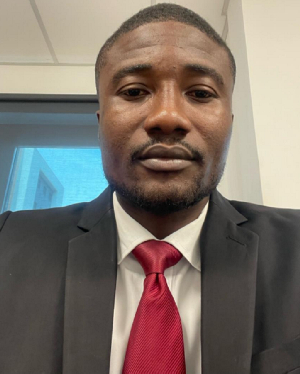Amnesty International (AI), a global non-governmental organisation, which focuses on human rights, has urged Ghana to abolish the death penalty for all crimes and commute the death sentences of persons on death row.
According to a report published by AI, dubbed: “Locked up and Forgotten: The Need to Abolish the Death Penalty in Ghana,” there had not been an execution in Ghana since 1993, yet, at the end of 2016, 144 men and four women were languishing on the country`s death row. Sixty two of them have been there for more than five years.
The report, which was launched in Accra on Wednesday, indicated that in recent years, it appeared Ghana was moving towards abolition of the death penalty.
It said 104 states had abolished the death penalty for all crimes, of which 19 were in Africa.
Ms Sabrina Tucci, the Research and Campaign Assistant on Death Penalty, AI, said rather than being left behind and maintaining this cruel practice in law, Ghana should take steps towards abolishing it.
It called on Ghana to abide by the international human rights obligations, particularly on the right to fair trial and the detention of people under sentence of death.
The issue of the abolishment of the death penalty had been high on the agenda of the Constitution Review Committee (CRC) which was inaugurated in January 2010, by then President John Evans Atta Mills.
In its report of December 2011, the CRC recommended that the death penalty be abolished under the new Constitution and replaced with life imprisonment without parole, and that such a move should be approved by a national referendum.
In 2012 the Government accepted the CRC`s recommendation but implementation is currently stalled as a result of delays in the Constitution Amendment process.
The AI report said in the meantime, Ghanaian courts continued to hand out mandatory death sentences for the crime of murder even though the United Nations Human Rights Commission in 2014 determined that such mandatory sentences violated Ghana`s international human rights obligations.
Mr Lawrence Amesu, a former Director of AI Ghana, who chaired the launch, said the organisation opposed the death penalty in all cases without exception, regardless of the nature or circumstances of the crime.
He said the death penalty violated the right to life as proclaimed in the Universal Declaration of Human rights; declaring that “It is the ultimate cruel, inhuman or degrading punishment”.
Ms Sabrina Mahtani, a Researcher from AI West Africa, said the organisation’s research into life on death row in Ghana found that many had been convicted after trials when they did not receive proper legal representation.
She said three quarters of them had access to a government lawyer provided by the Ghana Legal Aid but several inmates noted that their lawyers did not attend all the hearings.
Many said that they did not have a chance to talk to their lawyers and prepare their defence during trial, she said, quoting an inmate as saying; ‘I saw my lawyer during trial sessions but never had a chance to talk to him. I never had a chance to sit together with him and prepare my case, not even for one minute.”
Ms Mahtani said the Ghana Prisons Service informed AI that only 12 prisoners on death row had filed appeals since 2006; of which half were successful.
She said one of those cases in 2010 was Benard Tagoe’s conviction which was overturned by the Court of Appeal after he had spent 20 years on the death row.
Dr Vincent Adzahlie-Mensah, Board Member of AI, said Ghana’s neighbouring countries had abolished the death penalty, hence Ghana must follow suit.
He said death penalty should not be an issue of debate adding that everyone must have the right to life.
Mr Stephen Cofie, the Director of Prisons Administration and Finance of the Ghana Prisons Service, said the nation’s prison facilities, which were meant to accommodate 9,000 inmates were now hosting over 14,000.
Seventy-nine year old Cephas Komla Dzah, an ex-prisoner on death row, who was granted a presidential pardon in 2014 after serving 18 years in prison, appealed to the Government to abolish the death penalty.
General News of Wednesday, 12 July 2017
Source: Ghana News Agency













